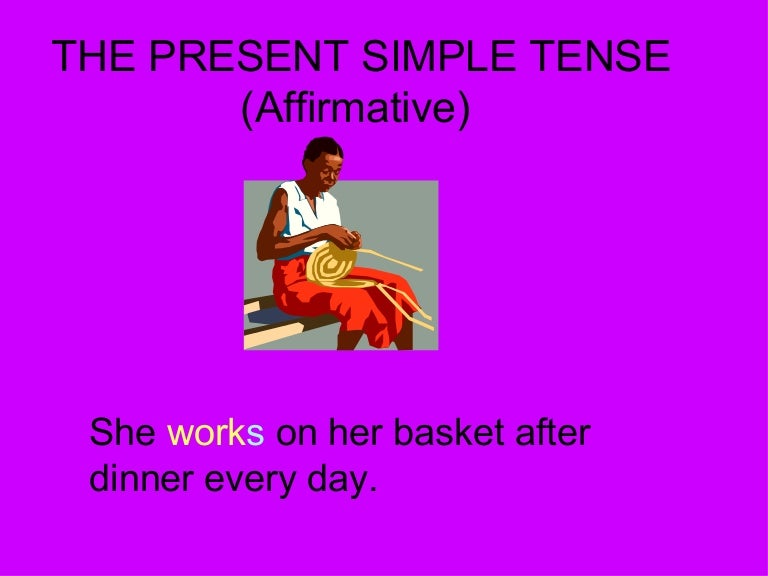TO START:
- LOOK AT THE FOLLOWING PICTURES:
1)

2)

3)
4)

- ANSWER THE QUESTIONS:
- What are they?
- What do they represent?
NOW
- WE´LL REMEMBER THE TOPICS TAUGHT:
- PRESENT SIMPLE:

- We use the present tense:
1. For repeated or regular actions in the present time period.
I take the train to the office.
2. For facts.
The President of The USA lives in The White House.
3. For habits.
I get up early every day.
Rules:
1. For verbs that end in -O, -CH, -SH, -SS, -X, or -Z we add -ES in the third person.
go – goes
catch – catches
wash – washes
2. For verbs that end in a consonant + Y, we remove the Y and add -IES.
marry – marries
study – studies
carry – carries
NOTE: For verbs that end in a vowel + Y, we just add -S.
play – plays
enjoy – enjoys
say – says
- ADVERBS OF FREQUENCY:

Include:
We use some adverbs to describe how frequently we do an activity.
These are called adverbs of frequency and include:
| Frequency | Adverb of Frequency | Example Sentence |
|---|---|---|
| 100% | always | I always go to bed before 11pm. |
| 90% | usually | I usually have cereal for breakfast. |
| 80% | normally / generally | I normally go to the gym. |
| 70% | often* / frequently | I often surf the internet. |
| 50% | sometimes | I sometimes forget my wife's birthday. |
| 30% | occasionally | I occasionally eat junk food. |
| 10% | seldom | I seldom read the newspaper. |
| 5% | hardly ever / rarely | I hardly ever drink alcohol. |
| 0% | never | I never swim in the sea. |
The Position of the Adverb in a Sentence
An adverb of frequency goes before a main verb (except with To Be).
| Subject + adverb + main verb |
|---|
| I always remember to do my homework. |
| He normally gets good marks in exams. |
An adverb of frequency goes after the verb To Be.
| Subject + to be + adverb |
|---|
| They are never pleased to see me. |
| She isn't usually bad tempered. |
- PREPOSITIONS OF TIME
| in | on | at |
Months: in January / in April
Seasons: in spring / in winter Years: in 1984 / in 2015 Centuries: in the 20th century Times of day: in the morning / in the evening Longer periods of time: in the past / in the 1990s / in the holidays |
Days of the week: on Monday
Days + parts of days: on Tuesday afternoon / on Saturday mornings Dates: on November 22nd Special days: on my birthday / on New Year’s Eve |
Clock times: at 7.30 a.m. / at 5 o’clock
Festivals: at Christmas / at Easter Exceptions: at night / at the weekend |
- ADJECTIVES

° Adjectives go before a noun.
- It´s a big house. NOT It´s a house big.
- It´s a big house. NOT It´s a house big.
°Adjectives don´t change before a plural noun.
- They´re pretty flowers. NOT They´re prettys flowers.
KIND OF ADJECTIVES:
- COLOURS: Orange, black, blue, etc...
- NUMBERS/ QUANTITY: One, two, three, some, many, several, few, much, little, more, etc...
- DESCRIPTIVES: bad, beautiful, big, dangerous, dirty, easy, empty, expensive, fast, high, old, rich, wet, etc....
